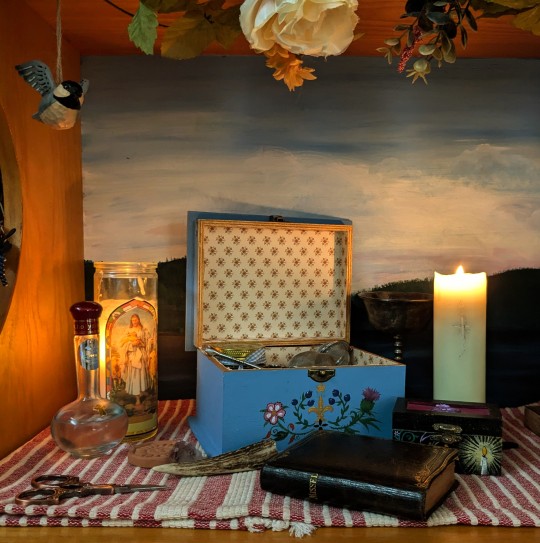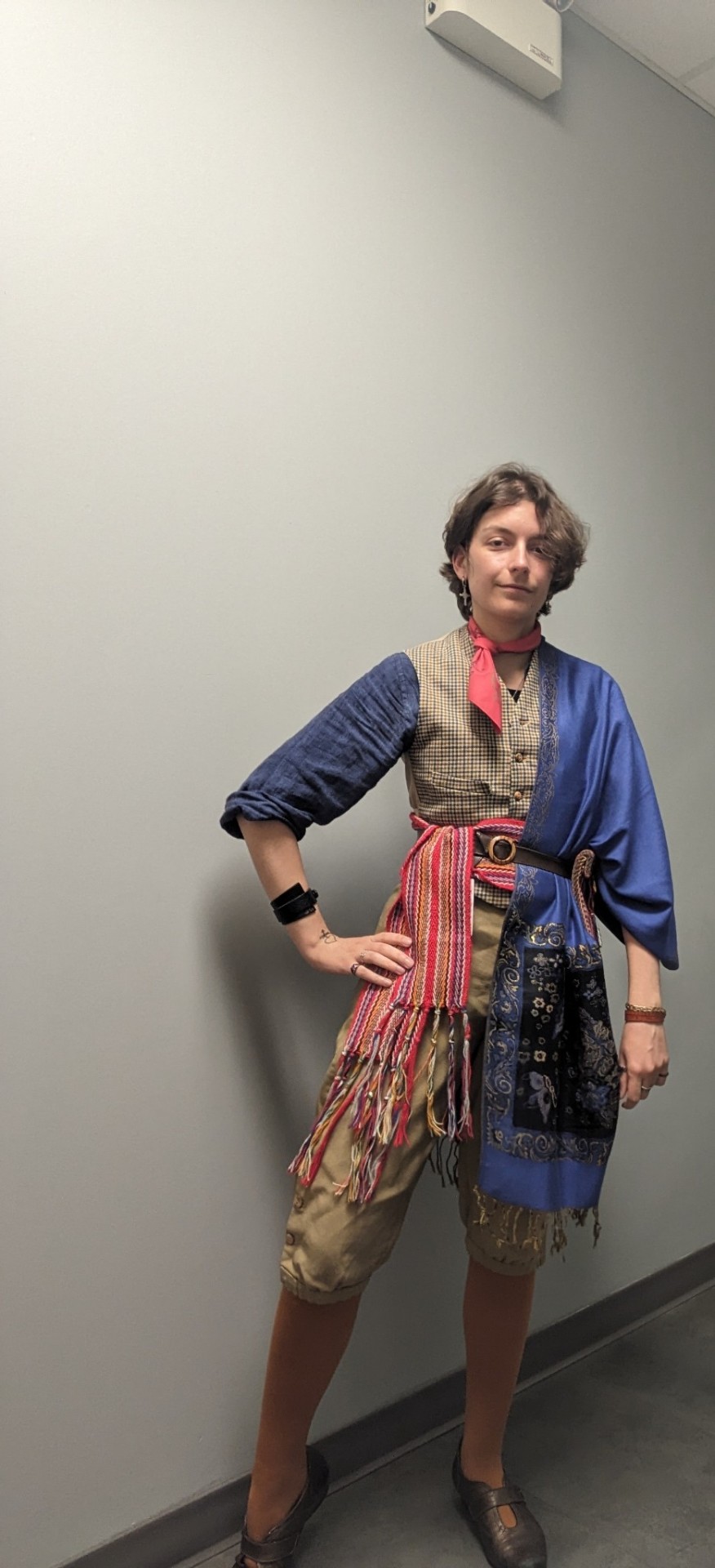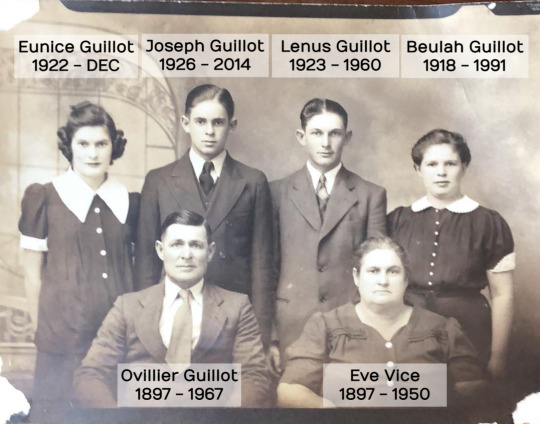#Acadian French
Text
Music and Arts for Interview with the Vampire and other French-Enjoyers
I am so genuinely excited to find out that Zachary Richard, the Francophone folk singer from Louisiana, has released a novel! The story addresses the concerns of the American Francophonie with the story of a family wracked by politics and violence in the wakr of the American Civil War.
Friends, this the is the first American novel to be published in French since 1894! Although there is still a Francophone community in Louisiana to this day, they have been dealing with forced Anglicization for well over a hundred years, including the forced Anglophone education of Francophone children.
Zachary Richard remains an outlier in an largely English American cultural landscape. He wrote and recorded the majority of his songs in French and is popular in the international Francophone musical community.
I have been meaning to talk about Richard for a very long time, particular in the context of Interview with the Vampire. There are a good many cultural references in Interview, but unfortunately it seems that the show-runners are not really too informed about historical French arts because there aren't many references to French music or playwriting. Lestat would be more likely to act Moliere than Shakespeare. Louis would be somewhere in between, probably listening to and speaking both French and English songs. Unfortunately, I'm not too familiar with Black Creole musicians, of which there were/are indeed plenty in Louisiana. I've been meaning to educate myself in that area and post a selection along with my favourite tracks from Richard, but life has been very pressing indeed these last few years, so that never happened.
Here, then, are a few of my favourite songs from Zachary Richard and a few brief recordings from Black Zydeco artists, as well as the blurb from Richard's novel.
I didn't include translations, because that would make this long post long indeed, but Richard's lyrics are readily available in any search engine.
The novel:
Summary:
In the disarray that fell on southern Louisiana following the Civil War, André Boudreaux, seventeen years old, discovered life with his grandfather Drozin. This southern veteran, who became a rich man thanks to the arrival of the railway, tries to regain his prestige and his political power. But the sordid murder of André's uncle, the turbulent elections of 1882 and the political aims of his daughter-in-law will turn his world upside down. Les Rafales du carême is the first French-language novel published by a Louisiana author since 1894.
The music:
Dans les grands chemins. (On the big roads). A song about personal history and being drawn away from your place of origin to explore the wider world.
youtube
Au bord de Lac Bijou (On the shore of Lac Bijou). One of his bigger songs and very basic of me, but it's beautiful.
youtube
Le Ballade de Jean Batailleur. Again, one of his big ones, but it's a ballad about an orphan who grows up to be a criminal and dies alone. Depressing but gorgeous.
youtube
And this one gives me chills every time. It's a live rendition of Richard's song "La Promesse Cassee," performed with Celine Dion. This is hands down Dion's best performance ever, imho. Her voice is so nuanced and her expression so powerful, without ever once over-singing. The song's content probably has a lot to do with that. Richard wrote it in the wake of Hurricane Katrina, when New Orleans was so utterly devastated, and the US federal government promised aid, which, after days of waiting, never came. "The Broken Promise" is a scathing and haunting commentary on that betrayal.
youtube
youtube
"Laisse le vent souffler" (Let the wind blow) addresses the same issue, but years later. The singer tells the story of the police arriving to evacuate the community as another hurricaine approaches. He refuses to leave because he has already survived other storms and he has seen how the police have failed to support a scattered community in the past.
Can't believe I almost forgot this one:
Reveille--A powerful song addresses the expulsion of the Acadians, the forced removal (by British/English Canadian forces) of the Acadian French from the Canadian east coast and northern USA east coast. Many of the Acadians were shipped further south or "back" to Europe, where most had never been. Plagued by attendant atrocities of starvation, drowning and disease, thousands of Acadians were killed. Those who survived the journey down the American coast eventually became known by the shortened name of "Cajuns."
youtube
There are also a few extra things here from Richard's YouTube, where he highlights other Louisiana French singers and musicians. I've only included a couple, but people writing for Interview might want to explore his page more, since there's some Black Zydeco (Louisiana folk and French) musicians there.
J'ai une chanson dans mon coeur:
I couldn't find anything out about this. A young, Black American girl sings this song in an American school. I think, and hope, that she's another member of the French Louisianian musical community. Very sweet.
youtube
Zachary Richard talking about his influences and earlier Zydeco music in Louisiana.
youtube
#music#francophonie#zydeco#zachary richard#interview with the vampire#louisiana french#french american#books#Youtube#french#francais#north american french#acadian french#cajuns#amc interview with the vampire
7 notes
·
View notes
Text
Hert Leblanc - Frolic des acadiens (French)
#country but like 90s-00s country#hert leblanc#frolic des acadiens#french#français#fra#français acadien#acadian french#français canadien#canadian french#canada#indoeuropean#romance#europe#2002#2000s#country#folk#Spotify
2 notes
·
View notes
Text
Folk Ways for an Acadian or French Canadian folk practitioner

I want to start an ongoing list of Acadian and French Canadian religious and popular folk ways that I've been learning about for the last two years. My references will be at the end for further reading!
Blessing a candle on Candlemas (Feb. 2) with holy water will allow you to have a light whenever there is sickness and storms hitting your home. Traditionally on Candlemas, the light is lit and guided through every room in the house to bless all its corners for the year. It was even paraded in the farmer's fields. (Dupont)
The 25th April, on St. Mark's Day, is the ideal day to bless your fields or garden before putting in the first seeds. This ensures the growing food to be blessed by this saint. (Maillet)
Animals have been known to speak in human tongues on Christmas Eve. (Maillet)
If you feel that nothing is going right in your day, your homemade bread sours, or general bad luck assails you, simply boil some holy medals. (Dupont)
The first three days of the month of August, the ocean waters are known to have healing properties, and it wouldn't hurt to dip your feet in it. (Chiasson)
It was customary to trace crosses on windows using holy water when a storm would hit. (Lacroix)
To find a lost object, simply toss a rosary or a pocket metal rosary over your shoulder. The foot of the cross will point in the direction where your lost object might be located. (Dupont)
To have good weather on your wedding day, be sure to hang your rosary on your clothes line the day before. (Dupont)
Maillet, Antonine. Rabelais et les traditions populaires en Acadie. Les presses de l'université laval, quebec. 1980.
Lacroix, Benoit. Folklore de la mer et religion. Editions Leméac, 1980.
Dupont, Jean-Claude. Héritage d'Acadie. Collection Connaissance, editions Leméac, 1977.
Chiasson, Père Anselme. Chéticamp: histoire et traditions acadiennes. Editions des Aboiteaux, 1972.
#christianity#witchblr#folk magick#french canadian#acadian#quebec#folk magic#witchcraft#acadia#canadian
29 notes
·
View notes
Text

CANUCK Canuck my beloved you deserve to be real
He’s technically already a national, but I basically just stole the name. He’s got the Vancouver canucks logo on his back (sponsored) as well as a bunch of the provincial flags! (Including Labradors cause fuck you)
He’s narrow gauge, so he’s got inline skates! Just thought it would be a silly nod. He’s also nice and polite but the SECOND he touches the race track it’s no holds bared, racing is a contact sport to him
#he thinks he and Greaseball are friends#greaseball hates him#he is friends with prince of wales tho#he’s my baby baby boy#the CN 805 is an actual engine#from NFL! that’s why I made him Labradorian#nobody understands what he’s saying#he can speak French but it’s Acadian French#stex#starlight express#starlight express oc#stex oc#Canuck the Canadian national
26 notes
·
View notes
Text
I started reading Llewellyn’s Complete Book of North American Folk Magic today, and usually these books on “North American” magic don’t have anything at all about Canada, and if they do, it’s one or two mentions of like “hey yeah, Canada is in North America and they’ve got witchcraft too!” But they rarely have any substantial info. Which is a bit frustrating as a Canadian witch, but I’ve learned to deal with it and work with the limited info I can find.
Anyways, this book opens with a chapter on French Canadian magic (Sorcellerie). The two authors—creators of the Courir le loup-garou blog about French Canadian magic, which is a wonderful and bilingual resource—describe a brief history of French Canadian people and the context behind the historical folk traditions they were a part of. And then they get into a discussion of what some of those traditions and practices were, what their uses were, and so forth.
I wasn’t expecting to read anything about my Acadian ancestors’ traditions in this book, and reading it made me a bit emotional because it’s just so rare to come across this information, let alone in an accessible book like this. The Acadian side of my family have become very disconnected from our culture over the last fifty-so years, largely the result of a lot of complicated historical stuff that went on. The last two generations (me and my mum’s generation) don’t even speak French. Nowadays, being bilingual is a massive source of pride in Canada, but knowing French wasn’t always a positive, so it wasn’t passed down for that reason.
Over the last year or so, my practice has shifted a bit from largely eclectic and neo-pagan to a calling to explore the traditions of my ancestors, many of whom are Acadian. But with that has come a difficult realization: since I don’t know French, a lot of the existing sources on sorcellerie aren’t accessible to me. Which is fair enough, and one of the reasons I’m trying to learn the language, but sad when taken in context with the gradual loss of culture in my family.
All of this to say that while I’ve only read the first section of the book (the essay on Sorcellerie) and have no idea how the rest of the book is, reading this chapter about the traditions of my Acadian ancestors was very beautiful and healing, and if you’re trying to reconnect to those traditions like I am, I really recommend reading this essay. I’ve learned a lot and have a few jumping off points now for further research, which is always so exciting!
#folk magic#sorcellerie#french canadian folk magic#acadian folklore#acadian folk magic#canadian folk magic#french canadian witchcraft#acadian witchcraft#books#ancestors#my post#Llewellyn’s Complete Book of North American Folk Magic
9 notes
·
View notes
Text
i actually love cajun music but i always forget i can just go on spotify and listen to some cajun music bc to me it's only available in bars where my dad has a gig
#for the uninitiated a few months ago my dad sort of accidentally joined a cajun band as a fiddle player#he's not cajun he's not even acadian in fact he's not even french canadian at all#but these friends of his had this cajun band and their fiddle player flaked on them so now my dad is their fiddle player#soapbox
10 notes
·
View notes
Text
I need a wisconsinite miku. She gets shitty milkshakes at kwik trip and works at a culvers. She goes to chalkfest every summer. She makes little homemade cheese curds. She feeds the giraffes at Milwaukee zoo. She goes to the Paul bunyan museum in eau claire. She buys all her furniture from Menards. Is this anything.
#brazilian miku meme#i wanted to make an acadian miku but a) im only half acadian and b) i havent been to maine in over 10 years#i am very very disconnected from the culture there :( and also my french sucks ass
3 notes
·
View notes
Text
Acadian miku. I'm gonna be honest I haven't been to Maine since I was 3 I do not remember anything about the culture. Genuinely considering going to Maine maritime academy just so I can be closer to where my dad grew up and actually learn something about my roots other than reading acadian history wikipedia and learning about nothing but how the British suck ass
Anyway fun fact my families ancestors only avoided the mass deportation by fucking off into the woods until the brits left. Also I found my pèpé's obituary the other day and it's very surreal to see the face of someone who died when you were in kindergarten
Oh and my mèmé, going off of old wives tales, kept telling my mom I'd be a boy since she was carrying high (that's an understatement I was all up in her ribs i was a menace as a fetusbaby), and my parents kept telling her "No, we got the tests done, the baby is female." But she was adamant that no, she was carrying me high. I was gonna be a boy. And like half a decade after she died, I (socially) transitioned and if heaven is real she's probably laughing her ass off about it.
Also my pèpé didn't know about segregation until he went to Florida despite being born in like 1930 or something
This started off as the "draw miku as part of your culture" meme but it devolved into me talking about my French grandparents who I have no memory of but many weird stories
6 notes
·
View notes
Text

Citroen acadiane
2 notes
·
View notes
Text
I read a comment on youtube a couple years ago that left me so confused that I still think about it sometimes.
This person said they visited Lafayette, Louisiana and that everyone they met only spoke french. Idk the way it was phrased it was if anyone they met on the street spoke french. But did they only talk to 3 people? Did they time travel back like 80 years? Was the accent so thick they didn't realize everyone was actually speaking english? I don't understand.
I was so intrigued that I actually replied (which I never do) but never got an answer.
#Sorry but our language is literally dying#Cajun french was a lot of our grandparents' first language#But they were punished if they spoke it in school#I mean this would be cool if it were true but I just don't see how#I'm from around that area and I've never had a person speak French to me there in my entire life#Did they stumble across some kind of Acadian narnia?#Omg wait did they just go to Acadian Village?!#That would be hilarious if that was someone's only exposure to louisiana#Like damn they still live like this?!
2 notes
·
View notes
Text

Sydel would be Br*tish in the real world and Maria would be Fr*nch in the real world and I think it's important for this information to be known.
#mango man speaks#mango man draws#oc shit#digital art#digital drawing#digital painting#and natalie would be japanese+jewish and the creeds would be cajun+german with a dash of native american somewhere in there#and cc would be acadian+mexican and amber would be polish+american and artimes and apollo would be creole and nova would eastern russian.#and marcus would be californian and crumpula would be british+south african and lola would be turkish and ardell would be scottish.#but importantly to this post. br*tish demon girl. and french witch.
13 notes
·
View notes
Text
i need to post about the random shit i fixate on for like weeks at best more often. i think the random acadieman deep dive i did that one time might have almost exclusively been on twitter before i dropped that site again. that was the weirdest turn i took other than when i got sick and got obsessed with dnb until i got better and literally could not give a shit about it anymore
#that one was really funny cuz there isnt really that much online (didnt look that hard to be fair i didnt feel like it)#and also i cant understand 90% of it because i dont know french.#i only like vaguely understood it cuz its acadian french that has some english in it#the only reason i decided to look at stuff about it again was bc i remembered seeing it on tv and being freaked out the animations. rough#ANOTHER THING THE ONLY REASON I REMEMBERED THIS WAS BC I ACCIDENTALLY FOUND MY ACADIEMAN FOLDER LMAOO
3 notes
·
View notes
Text




A lovely Quinzou to everyone! I got dressed in my best ritual clothes, packed up my Stella Maris rosary (that Moonshadow loves to munch on..), enjoyed some live Acadian music and had an intimate little ritual for Mary.
#Quinzou#Acadian#french canadian#folk magick#christianity#witchblr#witchcraft#folk magic#halifax#virgin mary
25 notes
·
View notes
Text
How to identify if someone is from Western Canada:
"French is pointless why learn French nobody in Canada speaks French except in Québec no one has ever been oppressed for speaking French did I mention I hate French?"
#literally 23% of canadians speak french#and québec is not the only province with french speakers#no one in qc is oppressed for being french but the same can't be said for all provinces#sincerely a nova scotian who has witnessed acadian hatred at the workplace - over the stupidest shit too#acadians can be annoying like any other settlers don't get me wrong#but i have literally seen ppl throw a fit over a simple request for language services
28 notes
·
View notes
Text
Day of Commemoration for the Acadian Expulsion

Image Description: A black and white portrait of the Ovillier Guillot and Eve Vice family, circa the early-to-mid 1900s. Top (children), left to right: Eunice Guillot 1922-Dec; Joseph Guillot 1926-2014; Lenus Guillot 1923-1960; Beulah Guillot 1918-1991. Bottom (parents), left to right: Ovillier Guillot 1897-1967; Eve Vice 1897-1950.
The two daughters wear similar dark, button-down dresses with white doll collars. The mother wears a dark, button-down open-collar blouse or dress. The two sons and the father wear white dress shirts covered by fastened suit jackets complete with ties.
Image by [[TBD]].
— — — — — — — — —
Pictured above is my 3rd great-uncle Ovillier Guillot and his family. He is the 4th great-grandson of Jean Baptiste Guillot.
Today is the Day of Commemoration for the Acadian Expulsion.
While I have quite a few direct ancestors who lived in Nova Scotia and ended up in France at the time of the expulsion, there's only one family unit that I have been able to confirm was expelled.
That was the family of my 8th great-grandfather Jean Baptiste Guillot, born in Acadia in 1720 with his body given to the Atlantic Ocean in 1758. His family was expelled from Cobequid, Acadia, Nova Scotia to France during the brutal "Great Expulsion" by the British, who wanted to squelch any potential threats from the Acadians and the Mi'kmaq during the French and Indian War.
His son (my 7th great-grandfather) Charles Olivier Miquel Guillot was only 13 in 1758 when they had to take the long, arduous 75-day journey to France. His father Jean, along with 4 of his brothers, never made it off of the ship.
Charles grew up in France where he married and had 3 children of his own. They left France in 1785 to board one of the seven ships paid for by Spain, Le Saint-Rémi, to take them to Lafourche Parish, Louisiana.
Many members of the Wabanaki Confederacy (I believe predominately it was the Mi'kmaq militia), in addition to other affiliated Indigenous tribes and Acadians, who rallied a resistance were slaughtered or expelled. They refused to swear loyalty to the British crown and surrender to British colonists, refused to convert from Catholicism to Protestantism, and refused to allow themselves to be displaced without a fight. Numerous battles took place to stop the deportation with wins and losses across the board.
While no one has one lineage, I was raised as a proud Cajun despite having often felt ashamed of being Cajun for various reasons (like my accent). I even tried my hardest over twelve years to banish anything that could link me to my roots, not knowing the history behind a part of my ethnicity and culture.
Digging into my ancestry has been a wild ride, and there were many things found within my lineages that were not honorable in any way, but this chunk of my history? This has made me proud to be Cajun again.
I wish I had respected it more when I was still able to be immersed in it. I wish I had asked my pawpaw to tell me more stories. I wish I had kept up with Cajun French (AKA Louisiana French). I wish I hadn't let my cultural heritage fall through my fingers.
Many blessings to those who fought and lost their lives against the British colonists in an attempt to secure the freedom of not only themselves but of future generations to come.
[Disclaimer: I am still only beginning to educate myself about this event and am utilizing my current understanding of how events unfolded and who was involved. I apologize in advance for any misconceptions or misinformation regarding the historical accuracy of my comments.]
#Nova Scotia#France#Canada#Acadia#Acadian#Acadian Expulsion#Day of Commemoration#History#Family History#Family#Genealogy#Genealogy Blog#Twisting Tree#Twisting Tree Ancestry#Ancestry#Ancestry Blog#Cajun#Le Saint Remi#Day of Commemoration for the Acadian Expulsion#Guillot#Guillot Family#Louisiana#Louisiane#Acadie à la Louisiane#Acadie#Mi'kmaq#Mi'kmaw#French and Indian War#Pawpaw#Cajun French
7 notes
·
View notes
Text
Some of my fave Métis folklore creatures:
Rou garou: from the french loup garou, a werewolf that can shapeshift like many cree stories.
Little men: brownies, fairies, or naiads/water nymphs, (fae) that use leaves as boats.
Whiitegoos: white monsters who eat children at night, from the cree wendigo(ak).
#metis#Métis#Métis folklore#metis folklore#Métis cryptids#metis cryptids#americana#fnmi folklore#native folklore#cajun folklore#only tagging bc we share the rou garou from the french#acadian folklore#Métis folk catholic#Métis superstition#fae#fair folk#noble ones#faeries#faer folk#brownies#brownie fae#naiads#nyads#water nymphs#fairies#wendigo#wendigoak#wendigoag#rou garou#rougarou
8 notes
·
View notes